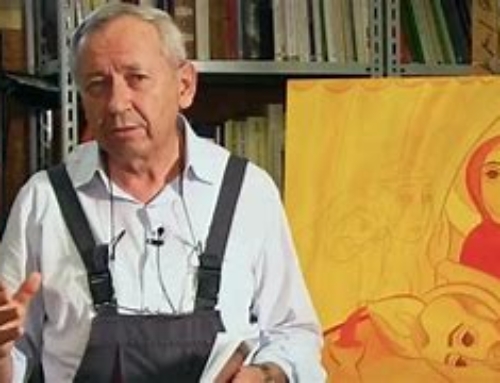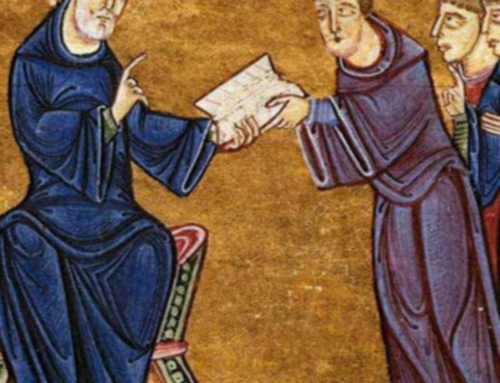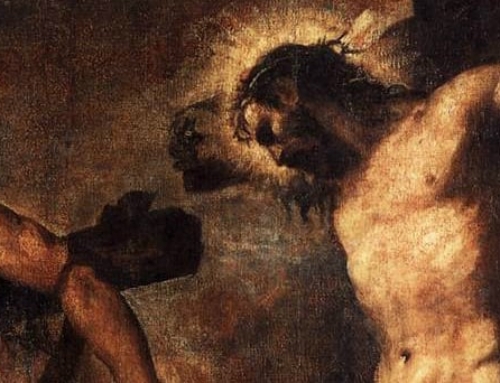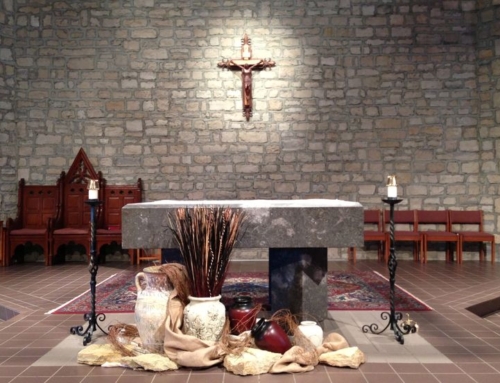There’s a notoriously crude Chick Tract called The Death Cookie which mocks the Catholic belief in the Eucharist, and it prompted a question from a non-Catholic friend of mine who said he found it difficult to believe that the Catholics were the only ones with the “magic cookie.”
Overlooking the frivolity of the language, he expresses a common misunderstanding amongst non-Catholics. I guess what he means by his statement is that he thinks that the Lord is also really present within non-Catholic Eucharists.
On the same day I had an email question from a Catholic who is engaged to an Episcopalian woman who is about to convert to the Catholicism. She claims that her female woman priest in the Episcopal church also “converts the bread and wine to the Body and Blood of Christ.”
On the one hand, it is wonderful to see non-Catholics desire a deeper and more real Eucharistic experience. On the other hand, it is confusing. Just what do non-Catholic Christians believe about the sacraments? Can a good Evangelical continue to deny that the sacraments are effective and also be annoyed when Catholics say that their non-Catholic sacraments are not effective? Do Evangelicals believe in the efficacy of sacraments or not? If they do, then in what way are they effective? If not, then why be annoyed at Catholic claims?
Of course, there are a whole range of opinions in the non-Catholic world about the Eucharist. Here’s a list from the ‘lowest’ to ‘highest’
1. Fellowship Meal – the Eucharist is a meaningful fellowship meal of Christians to thank God for Jesus’ death.
2 Symbolism – the bread and wine are symbols of Christ’s body and blood and they point to his death on the cross. The Eucharist is a “memorial service” with symbols
3. Individual Sentimentalism – the bread and wine remain symbols of Christ’s body and blood, but through the prayers and worship an individual may feel ‘closer to Jesus’. This subjective experience indicates a special gift of grace that has come through the worship.
4. Biological Receptionism – the bread and wine become the body and blood of Christ as the faithful individual receives them into his or her body. The transformation happens as the bread and wine are transformed into the faithful person’s body and blood through the natural biological processes.
5. Spiritual Receptionism – the bread and wine are transformed spiritually into the Body and Blood of Christ as the faithful receive in repentant faith.
6. Corporate Receptionism – the Church as the Body of Christ transforms the bread and wine into the Body and Blood of Christ as the whole Church (led by the minister) celebrate the Eucharist. Consecration is not limited to one moment, but is a whole action of the whole church within the whole Eucharist, and within all Eucharists. As the whole Church celebrates this action the bread and wine become the Body of Christ–which is the Church
7. Consubstantiation – the presence of Christ is with or next to the physical species of bread and wine.
Individuals and denominations may hold to one or more of these views in various combinations.
Is Jesus present in non-Catholic Eucharists? Well, in one way he is because he promises that where two or three are gathered in his name he is there among them, but this presence of Christ is of a different order than the Eucharistic presence.
So what happens at an Anglican Eucharist or a Baptist communion service? After I became a Catholic some Anglican friends said, “What about all those communion services you celebrated? The Catholic Church says they are meaningless.”
Well, no. Not really. The Catholic Church teaches that non Catholic Christian worship services can most certainly be channels of God’s grace. They are not worthless or meaningless.
But the inquirer may rightly press this and say, “But what does happen at a non Catholic Eucharist?”
To my knowledge Catholic theologians don’t specify what happens at a non-Catholic Eucharist.
We don’t say what happens. We just say what doesn’t happen. “This is not a Catholic Eucharist. Transubstantiation does not take place here.”
Now some non-Catholics–especially those of a high church Anglican position get sniffy and offended by this. I have never understood why. In making this statement we are simply affirming what the non-Catholics themselves say about their Eucharist. The Anglican articles of religion specifically deny transubstantiation, and all other Protestants would deny this specifically Catholic belief even more strenuously.
What happens at a non-Catholic Eucharist? We don’t say what happens. We simply say, “This is not a Catholic Mass.”
What does happen there remains an open question…a question which non-Catholics themselves remain uncertain about.
Therefore a question I would put to my non-Catholic friends is, “You tell me what happens at your Eucharist. What do you believe and why?”
As soon as we do ask them that question we hear the list of different opinions I outlined above.
What amazes me about all these different non-Catholic interpretations is that they are usually put forward by good “Bible believing” Evangelicals–many of whom hold to a strictly literalist interpretation of the Bible.
But the one passage where they suddenly go all symbolic is John chapter six:
they died. 50 But here is the bread that comes down from heaven, which anyone may eat and not die. 51 I am the living bread that came down from heaven. Whoever eats this bread will live forever. This bread is my flesh, which I will give for the life of the world.”
52 Then the Jews began to argue sharply among themselves, “How can this man give us his flesh to eat?”
53 Jesus said to them, “Very truly I tell you, unless you eat the flesh of the Son of Man and drink his blood, you have no life in you. 54 Whoever eats my flesh and drinks my blood has eternal life, and I will raise them up at the last day. 55 For my flesh is real food and my blood is real drink. 56 Whoever eats my flesh and drinks my blood remains in me, and I in them. 57
What happens at a non-Catholic Eucharist? I’m not really sure and neither are the non-Catholics, but what we can say is that whatever they believe it doesn’t connect with John 6.
Only the full blooded Catholic doctrine affirms and consolidates that most scandalous and wonderfully incredible teaching of Our Lord.
The Death Cookie? Wrong.
It’s the Bread of Life.
Go here to read the article I wrote last week on Three Way Transubstantiation.







Please comment on The Assyrian Church of the East, The Oriental Orthodox Churches, and The Eastern Orthodox Churches. Tell us about the efficacy of their Eucharist and their rights relative to reception at Catholic Masses. Thanks.
I’m sorry I don’t feel qualified to speak authoritatively on the matter.